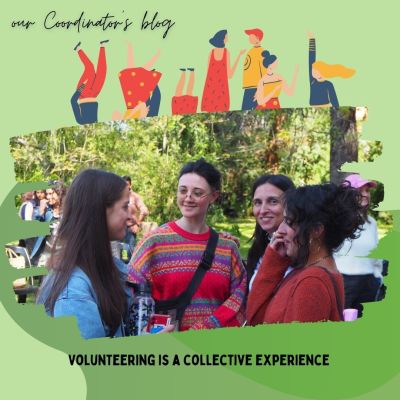Since in our last article, we enlightened you about the use of Lunfardo, this week we thought we’d include a few examples of the equally confusing Spanish words and expressions used in Argentina. This list highlights a few words and phrases used a lot in Argentina! Some are unique to Argentina, others not, but you will undoubtedly hear them a lot in conversation. Often these examples are used as time-fillers or tags, but at least a knowledge of them will make your time a little easier!
1. ¡Dale!: Equivalent to ‘vale’ used in Spain to mean ‘okay’. It is one of the affirmations Argentines use: “Vanessa, tengo que comprar unas cositas, vuelvo en 5 minutos, dale?” - ”Vanessa, I have to go a buy a few things, I’ll be back in 5, okay?” “Dale!” - “Okay!”
2. Mirá vos: Argentines use this all the time in a similar way to the way in English we say ‘wow’, or ‘no way’. For example mirá vos can be used after someone tells you something impressive or surprising: “Qué haces acá en Buenos Aires?” - “What are you doing here in Buenos Aires?” “Soy voluntario” - “I’m a volunteer” “Mirá vos” - “Wow, is that right?”
3. Tipo: This word is used a lot in Argentina for a various things. ‘Tipo’ can be used to refer to a person, to refer to a nonspecific time, also to describe the style of something. Here are some examples: “Este tipo es muy aburrido” - “That guy is really boring” “Nos encontramos allá tipo 9” - “Let meet there at around 9” “El lugar es tipo boliche, pero más tranquilo” - “The place is like a club, but more relaxed”
4. ¡Qué se yo!: This phrase is often used as a time-filler similar to ‘um...’ or ‘I don’t know’ in English. “Cómo es la ciudad” - “What’s the city like?” “Es grande, linda y, qué se yo, ocupada” - “It’s big, pretty and, I don’t know, busy”
5. Ojo: This is used to mean ‘be careful’ or ‘look out’ and it is often accompanied by a finger point to the eye. ‘Ojo, este tipo es de mala onda’ - ‘Be careful, this guy is shady/ dubious’
6. Onda: Onda literally means ‘waves’ or ‘vibes’. It can be used with ‘buena’ or ‘mala’ to mean the equivalent of ‘good vibes’ (buena onda) or ‘bad vibes’ (mala onda) in English. It can also be used after ‘Qué’ to mean ‘How’s it going?’. “Che, qué onda?” - “Hey man What’s up?” “Todo bien, recién fui a un concierto. Era de muy buena onda!” - “It’s all good, I just went to a concert. It was really cool!” “Qué celosa! Tengo que ir a mi trabajo, si llego tarde mi jefe se enoja. Es muy mala onda” - “I’m jealous! I have to go to work, if I arrive late my boss gets annoyed. He’s lame”?
7. Ya está/ Ya fue: These 2 expressions are used after something has happened. It is used in the same way as ‘it’s done’, ‘that’s that’, ‘there’s nothing else you can do’ in English: “No puedo creer que perdí mi cámara anoche!” - “I can’t believe I lost my camera last night!” “Ya está” - “It’s done, forget about it” “Fue una lástima que no la viera” - “It’s a shame that I didn’t get to see her” “Ya fue, la próxima será” - “That’s that, next time”
8. Pasa que...: It means ‘the thing is’. It’s a good one to remember because it is used a lot. “Quiero ir a la fiesta, pasa que no tengo tiempo!” - “I want to go to the party, the thing is I don’t have any time!”
9. ¿Cómo andas?: This is just another way of saying ‘How are you?’, but it’s extra Argentine. It means the same as ‘Cómo va?’ used in other spanish speaking countries. “Cómo andas, boludo?” - “How’s it going, man?”
10. Viste: This word is used like ‘you know’ is used in English. It is pretty much unique to Argentina, and you will no doubt here it a lot. “Prefiero no vivir en la ciudad, viste, siempre hay demasiada gente” - “I prefer not living in the city, you know, there are always too many people”
11. Re: This is used as a prefix, before an adjective to put emphasis on it. It means ‘very’ or ‘so’ and it is used a lot in Argentina instead of ‘muy’. “Cómo fue tu viaje en Patagonia?” - “How was your trip to Patagonia?” “Re lindo, me encantó el glaciar!” - “So beautiful, I loved the glacier” Other words and phrases: Trucho - ‘fake’ Piola - ‘cool’ Dar bola - ‘to pay attention’ No me rompas las pelotas - ‘Stop annoying me’ Vamos de joda - ‘let’s party’ Hinchapelotas - ‘annoying’, ‘a pain’ So now we’ve given you the first little nudge on your way to fluency in Argentine Spanish, you can start practicing and learning more expressions and words! And maybe eventually, you might sound like this:




